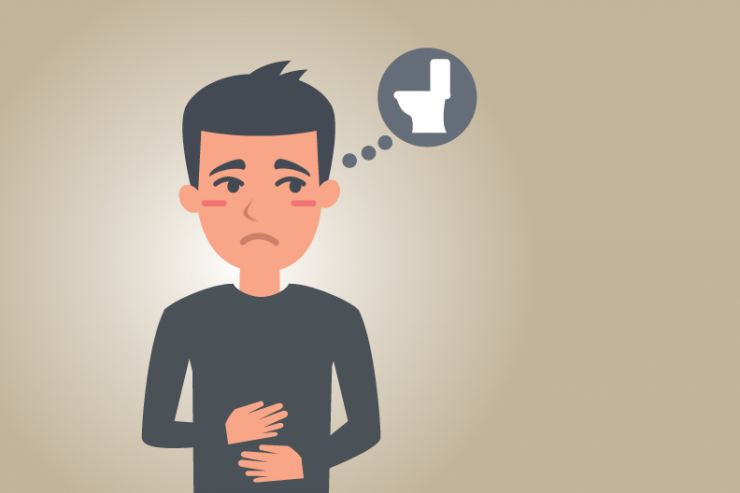Diarrhea
Overview | Possible Causes | Care and Treatment | HOME REMEDies | When to Call the Doctor | References

Overview
Diarrhea is characterized by loose, watery stools or a frequent need to have a bowel movement. It usually lasts a few days and often disappears without any treatment. Diarrhea can be acute or chronic.
Acute diarrhea occurs when the condition lasts for one to two days. You might experience diarrhea as a result of a viral or bacterial infection. Other times, it could be due to food poisoning.
There’s even a condition known as traveler’s diarrhea, which happens when you have diarrhea after being exposed to bacteria or parasites while on vacation in a developing nation. Acute diarrhea is fairly common.
Chronic diarrhea refers to diarrhea that lasts for at least four weeks. It’s usually the result of an intestinal disease or disorder, such as celiac disease or Crohn’s disease.
Possible Causes
You may experience diarrhea as a result of a number of conditions or circumstances. Potential causes of diarrhea include:
- A food intolerance, such as lactose intolerance
- A food allergy
- An adverse reaction to a medication
- A viral infection
- A bacterial infection
- An intestinal disease
- A parasitic infection
- Gallbladder or stomach surgery
Rotavirus is a common cause of childhood diarrhea. Bacterial infections due to salmonella or E. coli, among others, are also common.
Chronic diarrhea may be a symptom of a more serious condition such as irritable bowel syndrome or inflammatory bowel disease. Frequent and severe diarrhea could be a sign of intestinal disease or a functional bowel disorder.
Care & Treatment
The treatment for diarrhea usually requires replacing lost fluids. This simply means you need to drink more water or electrolyte replacement beverages, such as sports drinks.
In more serious cases, you may get fluids through intravenous therapy. If a bacterial infection is the cause of your diarrhea, your doctor may prescribe antibiotics.
Your doctor will decide your treatment based on:
- The severity of the diarrhea and related condition
- The frequency of the diarrhea and related condition
- The degree of your dehydration status
- Your health
- Your medical history
- Your age
- Your ability to tolerate different procedures or medications
- Expectations for improvement of your condition
Home Remedies
Diarrhea usually clears up quickly without treatment. To help you cope with your signs and symptoms until the diarrhea goes away, try to:
- Drink plenty of clear liquids, including water, broths and juices. Avoid caffeine and alcohol.
- Add semisolid and low-fiber foods gradually as your bowel movements return to normal. Try soda crackers, toast, eggs, rice or chicken.
- Avoid certain foods such as dairy products, fatty foods, high-fiber foods or highly seasoned foods for a few days.
- Ask about anti-diarrheal medications. Over-the-counter (OTC) anti-diarrheal medications, such as loperamide and bismuth subsalicylate, might help reduce the number of watery bowel movements and control severe symptoms. Certain medical conditions and infections — bacterial and parasitic — can be worsened by these medications because they prevent your body from getting rid of what's causing the diarrhea. Also, these drugs aren't always safe for children. Check with your doctor before taking these medications or giving them to a child.
- Consider taking probiotics. These microorganisms may help restore a healthy balance to the intestinal tract by boosting the level of good bacteria, though it's not clear if they can help shorten a bout of diarrhea. Probiotics are available in capsule or liquid form and are also added to some foods, such as certain brands of yogurt. Further research is needed to better understand which strains of bacteria are most helpful or what doses are needed.
When to Call the Doctor
If you're an adult, see your doctor if:
- Your diarrhea persists beyond a few days
- You become dehydrated
- You have severe abdominal or rectal pain
- You have bloody or black stools
- You have a fever above 102 F (39 C)
In children, particularly young children, diarrhea can quickly lead to dehydration. Call your doctor if your child's diarrhea doesn't improve within 24 hours or if your baby:
- Becomes dehydrated
- Has a fever above 102 F (39 C)
- Has bloody or black stools
To book online consultation to meet our expert doctor click on the link below





































































































